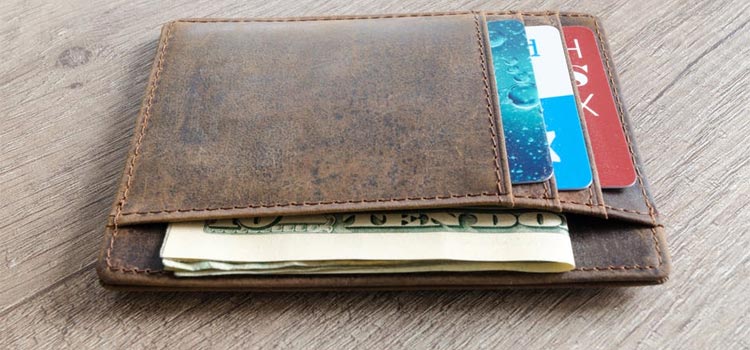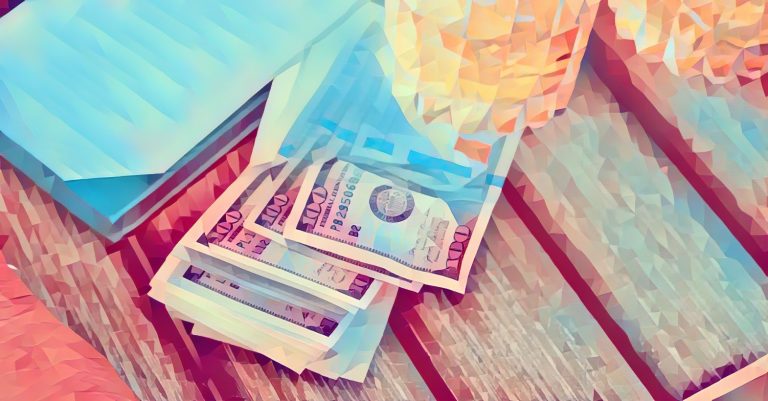Ever wondered if you can get free government money?
- Inbox Dollars - Get paid to check your email. $5 bonus just for signing up!
- Survey Junkie - The #1 survey site that doesn't suck. Short surveys, high payouts, simply the best.
- Nielsen - Download their app and get paid $50!
Well, you can’t.
The government doesn’t technically give away free money.
What it does provide are free government grants and federal benefit programs to help those citizens who need it the most.
Applying for these grants and assistance programs involves meeting certain criteria and submitting specific requirements.
Such government assistance is funded every tax season, so if you’ve been paying taxes your whole life, consider this “free government money” as the benefits of religiously doing your responsibility every tax season.
10 Kinds of Free Government Money Available
All types of free government money programs will check your credit and finances (the government serves the most in-need first).
1. Money for Childcare
Childcare is expensive, from paying for daycare so you can earn a living to buying supplies like milk and baby food, the expenses will continue until a child becomes a teen.
Fortunately, you can get government assistance for childcare typically for children 13 years old or under.
The Child Care and Development Fund, which operates under the U.S. Department of Health and Human Services, provides assistance for daycare funding, pediatrics, and nutrition.
Know that this program is income-based and will be offered by your state CCDF.
2. Free Government Money for Groceries and Free Food
If feeding your family becomes a struggle, you can check out three government assistance programs developed to help those with financial hardship well-fed (at least until they could support themselves).
- SNAP (Supplemental Nutrition Assistance Program, aka “food stamps”) – This is income-based, so you’ll need to apply and send proof that your household cannot afford enough food for everyone. If you’re eligible, you’ll receive SNAP benefits from a monthly Electronic Benefit Transfer (EBT) card, which works exactly like a debit card and used to buy groceries. You can go to your local grocery store and hunt for “SNAP eligible” tags to see which items are covered by your card.
- WIC (Special Supplemental Nutrition Program for Women, Infants, and Children) – As its name suggest, this free government money is exclusive to low-income women who are either pregnant, breastfeeding, or taking care of her child 5 years old or younger. It covers fund for food and health care.
- School Lunch for Kids 18 and below – School-aged kids can get free (or discounted) lunches every school day. The National School Lunch Program (under the US Dept. of Agriculture) has fed over 4.8 billion nutritional lunches to children nationwide in 2018. To qualify, the child should be part of a household under other Federal Assistance Programs, such as the Supplemental Nutrition Assistance Program, or based on their status as a homeless, migrant, runaway, or foster child.
3. Home Repair and Winterizing Assistance
If you live in an urban area and are 62 years old (or up), you could be eligible for a government grant amounting to up to $7,500 to repair your home, or remove hazards such as weak structures, mold, or lead paint.
The Rural Housing Repair Loans and Grants program offers loans (20-year-terms at 1% interest) and grants (free government money you don’t need to repay) exclusively to homeowners in rural areas.
Those who are interested in winterizing their homes in hopes of reducing electricity consumption could seek government assistance through the Department of Energy’s Weatherization Assistance Program Technical Assistance Center (WAPTAC) program.
While this program prioritizes households with children or a family member with disability, you still have a chance since about 30 million homes are reportedly eligible for winterizing grants.
4. Utility Bills Government Grants
The Low Income Home Energy Assistance Program has been helping people who are struggling to pay for heating and cooling costs for years.
This grant, which is under the U.S. Department of Health, is issued via states, which is why eligibility and income levels may vary between states.
5. Free Phone Service
If you need a phone plan, but your income does not let you have one, apply to the Lifeline program.
This assistance program helps qualifying, low-income individuals stay connected to family, emergency services and jobs right at the comfort of their fingertips.
You do have to meet eligibility requirements (mostly income-based).
6. Free Government Money for Housing
If you’re a low-income family and you want to buy a home in the private market, you might be eligible for the Housing Choice Voucher (HCV) homeownership program. To apply, you need to contact your local Public Housing Agencies (PHAs), which administers this program with federal funds from the US Department of Housing and Urban Development (HUD).
On the other hand, if you are struggling with mortgage payment and at risk of foreclosure, you can seek the help of Homeownership Preservation Foundation’s HOPE program.
No joke. Here are the fastest ways to make easy money online. Click here to see how.
Call 888-995-HOPE or visit 995hope.org and you’ll be greeted by someone willing to help you not only settle your backlog, but work with you to come up with a plan to suit your current income level, or modify your mortgage for those who got victimized by a mortgage scam.
7. Free College Education
A college grant is probably one of the most significant free government money you can receive.
Some students are lucky to land a scholarship, but most people who finish university end up with a massive student loan that they’ll pay for the majority of their adult lives.
Fortunately, college grants give students a chance at paying for college without getting drowned in debt.
The federal Pell Grant, for example, can provide up to $6,000 per year per student, but the amount would depend on factors such as financial need, enrollment status, and total tuition fees.
In most cases, the student has to shoulder at least some of the fees.
8. Free Government Money for Healthcare
Everyone should have access to medical care.
If you don’t currently have health insurance, you can sign up for a plan through the Health Insurance Marketplace. While not exactly free money, if your income is below a certain threshold, you’re eligible for a premium tax credit, essentially making your medical insurance free.
You can also find out if you’re eligible for Medicaid. Different states have different eligibility criteria, so look up the eligibility rules carefully.
Uninsured children and pregnant women in families with incomes too high to qualify for Medicaid but too low to afford private coverage may be eligible for the Children’s Health Insurance Program (CHIP). Similar to Medicaid, the exact eligibility criteria vary per state.
The website InsureKidsNow.gov is another great resource to read up on health insurance for families and kids.
9. Government Assistance for Unemployment
If you’ve recently been laid off and are struggling to settle financial responsibilities or buy basic necessities like food, you can apply for unemployment assistance with the Department of Labor.
The help could be enough to get you through this rough patch until you find replacement employment.
Not everyone is eligible though, so make sure to check first.
10. Free Government Money for Veterans and Senior Citizens
Veterans can obtain free government money from various departments.
For example, if you’re sick and need medical assistance, the U.S. Department of Veterans Affairs can find you a suitable grant for this particular requirement.
This is also the case for senior citizens.
In fact, the National Council on Aging has made it easier for our older citizens to find over 2,500 federal and state benefits (as well as some from private companies) with the BenefitsCheckUp tool.
With this site, senior citizens can find benefits from food to hospital stays to prescription meds, and so on.
You can make money from home and it doesn't have to be challenging. Click here to see how.
Collecting Unclaimed Money
If you aren’t qualified to get free government money from the options above, maybe you’re forgetting some unclaimed money years or decades ago.
People or companies can owe you money from past deposits, refunds, and other similar payments that they were unable to send your way due to various reasons. Maybe you moved to another state or changed contact numbers.
The good news for you is that you can still claim these funds even years later by going to unclaimed.org.
You can also check if you have unclaimed back wages or unclaimed life insurance funds (for veterans).
Here are 5 other types of unclaimed money:
- Pension – If you were once employed by a company that went bankrupt, or moved to another company without claiming money from a pension plan, you’d be surprised that you can still receive this money. Go to Pension Benefit Guaranty Corporation (PBGC) and search for your name if you’re included in the “Unclaimed Pensions” page.
- Bank or Credit Union Failures – Everyone knows that banks insure depositors for up to $250,000 per account, right? If you were a depositor of a failed bank, you can still claim your money back by visiting the FDIC website. It is the same process with failed credit unions and the money you invested at the time they were active. Visit National Credit Union Administration (NCUA) for possible unclaimed deposits.
- Tax Return – You can receive state or federal tax refunds that you weren’t able to receive in the past. Just check with the IRS or your state revenue department to see if you have unclaimed tax refunds left to collect.
- United States Savings Bonds – You can recover any savings bond you have that has been damaged or stolen, as long as you still have the bond serial number. The U.S. Treasury will help you even if you don’t have the serial number anymore, but remember date of purchase.
- Refunds for Past FHA Mortgage – If you got FHA-insured mortgage in the past, you can check the U.S. Housing and Urban Development database to see if you are owed a refund.
These aren’t technically ways of finding “free” money, since they are actually owed to you.
However, it can help you collect on funds you didn’t even know you were missing.
A Note About Free Government Money Scams
Make a quick Google search about “free government money” and you’ll discover several grant scams luring you in.
While they’re very easy to spot, some people might still prefer to play with their luck and hand over their hard-earned money in exchange for longer, more stable government assistance.
Unfortunately, once scammers have gotten your money, they would most likely leave you hanging with about $20, $50, or $100 less from your savings.
And if the scammers don’t collect fees, it may just be that they’re trying to steal your information (which can lead to something as serious as hacking your online accounts, to worst-case-scenarios like identity theft).
So, Who Wants Free Money?
Every year, the federal government gives away millions of dollars in grants and monetary assistance.
It’s more practical to think of these grants as free government money that you need to use for the grants’ intended purposes and you never need to pay back.
Combine as many of the government grants you’re eligible for so you can relax a little if you’re struggling to make ends meet.
If it’s your birthday, make sure to check this big list of birthday freebies (or this list if you hate giving away personal info).
Got kids in your household? You can also get a ton of free baby samples, free books for kids, and other samples that you can receive by mail.
Have you ever applied for a grant or been eligible for benefits? Help other readers by telling your stories in the comments.





